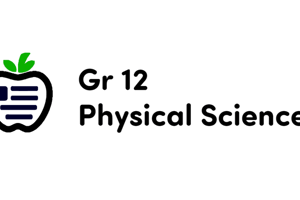Podcast
Questions and Answers
What distinguishes a functional group in organic chemistry?
What distinguishes a functional group in organic chemistry?
- It is solely responsible for the physical properties of a molecule.
- It can only be an atom without any other atoms attached.
- It is unrelated to the chemical reactivity of a compound.
- It defines the structure of certain families of organic molecules. (correct)
Which of the following is the functional group present in alcohols?
Which of the following is the functional group present in alcohols?
- -OR' (Alkoxyl group)
- -OH (Hydroxyl group) (correct)
- -X (Halide group)
- -CHO (Aldehyde group)
How does the size of alkyl groups larger than C4H9 affect solubility in water?
How does the size of alkyl groups larger than C4H9 affect solubility in water?
- It increases solubility due to increased polarity.
- It converts the compound into an ionic solution.
- It has no significant effect on solubility.
- It decreases solubility due to non-polar characteristics. (correct)
What is the general molecular formula for alkenes?
What is the general molecular formula for alkenes?
Which functional group is found in ketones?
Which functional group is found in ketones?
Study Notes
Functional Groups Overview
- Functional groups are atoms or groups of atoms that determine the characteristics of organic molecules.
- Each functional group imparts distinct qualities and influences the physical and chemical properties of organic compounds.
- The presence of specific functional groups defines the structure of various families of organic molecules.
Examples of Functional Groups
-
Alkyl Halides (R-X):
- Functional group is the halogen atom (-X).
-
Alcohols (R-OH):
- Functional group is the hydroxyl group (-OH).
- The polar nature enhances solubility in water.
Physical Properties and Solubility
- The alkyl group (non-polar) often opposes the polar effects of the hydroxyl group in alcohols.
- For alkyl groups larger than butyl (C4H9), the non-polar characteristics significantly reduce solubility in water.
Common Functional Groups
- Common functional groups with their respective molecular formulas and characteristics are summarized in a table:
- Alkanes: General formula $C_nH_{2n+2}$ or R-H (no functional group)
- Alkenes: General formula $C_nH_{2n}$; contains a double bond ($C=C$)
- Alkynes: General formula $C_nH_{2n-2}$; contains a triple bond ($-C \equiv C -$)
- Haloalkanes: Formula R-X (X = F, Cl, Br, I); functional group is the halide (-X)
- Alcohols: Formula R-OH; functional group is the hydroxyl group (-OH)
- Phenols: Formula -OH or C₆H₅OH; functional group is the hydroxyl group (-OH)
- Ethers: Formula R-O-R'; functional group is the alkoxyl group (-OR')
- Aldehydes: Formula $H \atop R C=O$; functional group is the carbonyl (-CHO)
- Ketones: Formula $R \atop R C=O$; functional group is the carbonyl ($C=O$)
Importance of Functional Groups
- Functional groups play a crucial role in determining the chemical behavior and reactivity of organic compounds.
Studying That Suits You
Use AI to generate personalized quizzes and flashcards to suit your learning preferences.
Description
Explore the key functional groups that define organic molecules and their characteristics. This quiz will help you understand how these groups influence the properties and structures of various organic compounds. Test your knowledge on alkyl halides and other functional groups in organic chemistry.




